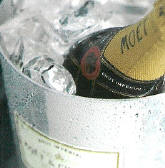 |
|
 |
 |
 |
|
|
Cork, Ireland |
844-442-7847 |
|
|
Awaiting Your Return From Shore |
The
proud city of Cork has a recorded history that dates back to the
7th Century with the founding of a monastery by St. Finbarr on a
small alluvial island in the River Lee. In fact, Cork’s ancient
Irish name literally means “Marshy Place.” Today, St. Finbarr’s
Cathedral now stands on this very spot.
|
Awaiting Your Return From Shore |
|
|
|
|
|
|
||
|
|
|
|
|
Complimentary Spirits Await |
Return to Your Suite and Sail Away to The Next Adventure |
Entertainment and Dancing Await You |
|
|
|
|
|
844-442-7847 |







